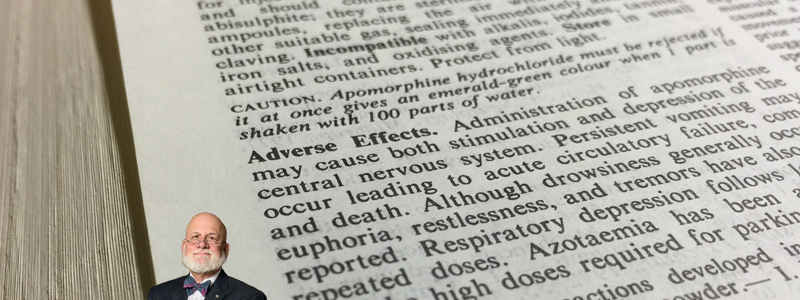Loretta told her doctor her stools were black and the doctor said it was probably caused by internal bleeding and that she needed more tests. She was visibly upset with worry when she relayed her story to me.
There are some foods – and even medicines – that can color stools. It’s normal and most often harmless. Loretta said she hadn’t added any different foods, but that she had been using an antacid for her heartburn.
Usually, antacids don’t discolor the stools – BUT – there is one popular product that’s known to darken stools. Pepto Bismol® (bismuth subsalicylate is the active ingredient). I asked and Loretta confessed that she had started using Pepto Bismol® for her stomach problems. She said it tastes great and works quickly.
Mystery solved. Pepto Bismol® was the culprit and not internal bleeding as her doctor said. Loretta is greatly relieved.
However, I’m dismayed that a doctor reacted so quickly – and dispassionately – to a question that could have easily been resolved without panicking a patient. It’s too bad the small amount of time the doctor had to work with this patient might have caused him to overreact and needlessly scare the heck out of Loretta who, I suspect, is looking for a new doctor.
Here’s what the Pepto Bismol® website says about black stools.
“This discoloration is temporary and harmless. The active ingredient in Pepto Bismol contains bismuth. When a small amount of bismuth combines with trace amounts of sulfur in your saliva and gastrointestinal tract, a black-colored substance (bismuth sulfide) is formed. This discoloration is temporary and harmless.”
Can we learn something from this story? Of course. Let’s start with the first health professional – the doctor. I give him the benefit of a doubt – so to speak – by suggesting that he is under such pressure to see large numbers of patients that he didn’t have time to think before speaking. The pressure is known to cause many of us to react rather than respond. The best route would have been to calmly discuss the matter with the patient rather than jumping to a such a negative conclusion. While that explanation can help us understand how the poor communications arose, it doesn’t do anything to prevent things like that from happening again, causing greater distress, and maybe some serious medical results.
Yes, doctors are busy, but the current environment has shifted the professional work we expect from medical doctors to more of a paid hourly labor. This has been initiated with the intention of keeping healthcare costs affordable. Sadly, the real outcomes are not what most of us would like. Taken to its terrible end, I’d hate to see medicine degrade to a place where it would be acceptable to a surgeon to halt or delay a procedure because it’s “almost time to punch out.” No, it isn’t that bad, yet.
Let’s all raise the cry for a return to professionalism in healthcare because there’s too much at stake to allow our doctors to be treated no better than the hourly staff at the local retail store.

